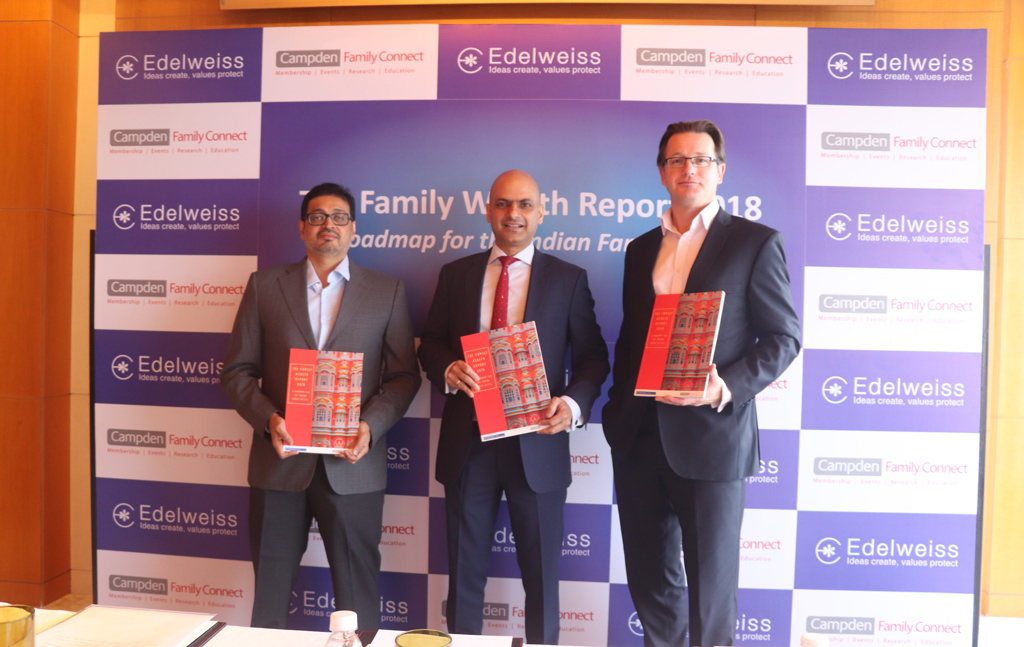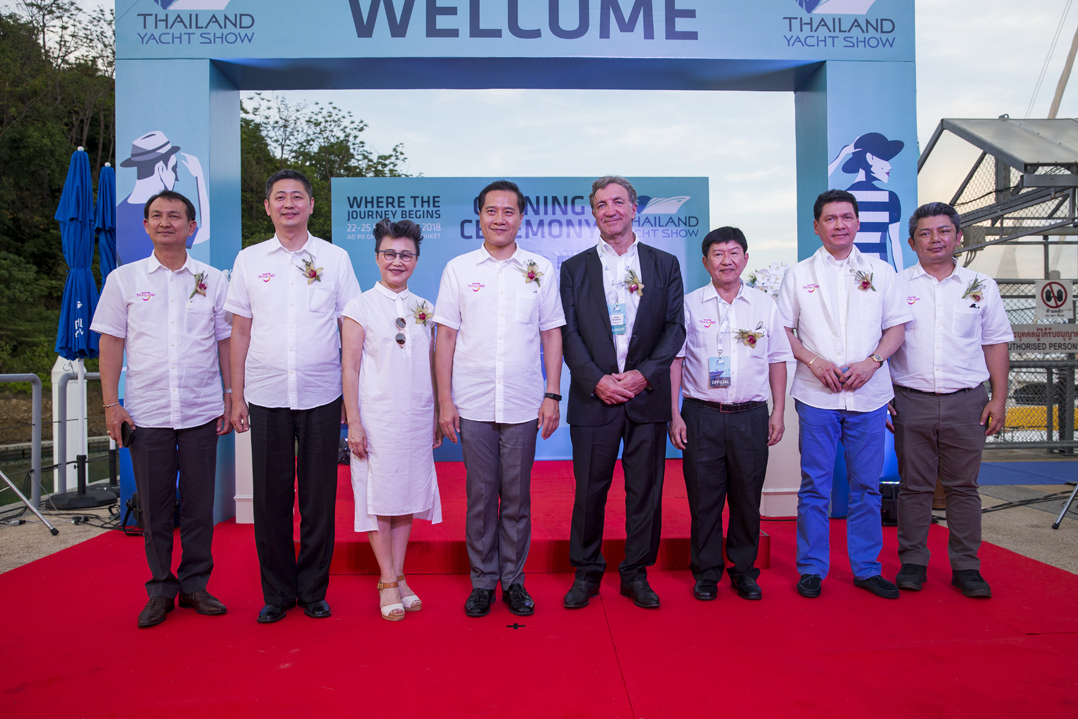Edelweiss Private Wealth Management, one of India’s leading wealth management firms, and Campden Family Connect, a pre-eminent membership network for India’s ultra-high net worth community, today jointly launched India’s first research report dedicated to family offices. Titled ‘The Family Wealth Report -2018, a roadmap for the Indian family Office’, the report is based on primary research with qualitative and quantitative data gathered from UHNWI (Ultra-high Net worth Individuals) from across India and enables peer to peer learning focussed towards families that are keen to learn about family offices in India. PEAKLIFE brings you a summary of the key findings…
78 UHNW families were examined with an average net worth of USD $645 million and assets under management (AUM) USD $318 million. The report acts as a guide to understanding the basic structure of a family office, it seeks to understand the needs of Indian UHNWIs and provides an in-depth view of how these Individuals look at family offices to manage their needs, be it wealth management, governance, investment, succession planning or philanthropy. The report also empowers readers to start understanding the steps and questions that one needs to ask for setting up a family office and operate in an institutional manner.
According to the report, of the 78 families of wealth in India studied for this report, nearly half (49%) utilise family office services. These services most often come in the form of hybrid family offices which are family office services that are embedded in the family business (22%), which is a common form of early family office development. Further, the survey respondents reported that the core reasons their family offices were founded were to add a layer of professionalism to their family business and investment structures (53%), to help successfully transfer wealth between generations (44%) and to embark on co-investing opportunities (38%).
Here are the 7 key highlights brought forth by the report.
1. The family office space is beginning to take root in India
The concept of a ‘family office’ – including what a family office is, why one is established, how one can be structured, what services and benefits it can provide – is still relatively nascent in India. With that said, Campden Family Connect estimates that there are currently about 45 formal family office structures in existence in India today.
2. Average family wealth $645m; average family office AUM $318m
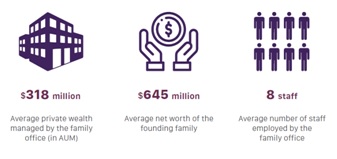
3. Nearly half utilise family office services
Of the 78 families of wealth in India studied for this report, nearly half (49%) utilise family office services. These services most often come in the form of hybrid family offices which are family office services that are embedded in the family business (22%), which is a common form of early family office development. However, the wealth community in India has shown signs of further professionalising their wealth management structures and have been establishing single-family offices that are independent of the family business, as denoted by 19% of respondents, or establishing/joining multi-family offices as noted by 8%. The remaining families either do not use wealth management services (32%), take their wealth management advice from family or friends (18%), or they rely on external advisers (31%).
Wealth Management Services used by the Families
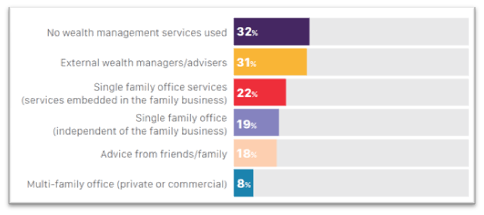 Source: Edelweiss-Campden ‘The Family Wealth Report 2018’
Source: Edelweiss-Campden ‘The Family Wealth Report 2018’
4. Fixed income and equities, the two most favoured asset classes
Over half (54%) of the families operate based on a balanced, preservation plus growth, investment strategy. With that said, the most popular asset classes respondents are currently invested in are fixed income, as denoted by 28% of respondents, equities (26%), private equity (16%) and real estate (12%). Looking to the future, over the next 12 months families, on average, intend to invest more into equities, private equity and developed market fixed income, and less into developing market fixed income, real estate and hedge funds.
Investment Strategy
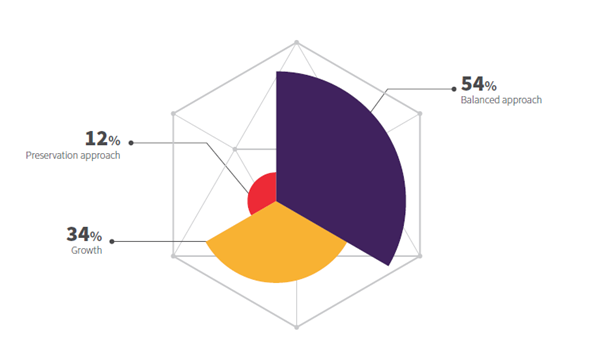 Source: Edelweiss-Campden ‘The Family Wealth Report 2018’
Source: Edelweiss-Campden ‘The Family Wealth Report 2018’
5. India remains the focus for family investment
Nearly every family represented within this research invests in India (99%). Outside of this, from a regional perspective, 14% also invest in North America, 11% in Europe, 10% in Asia-Pacific, 7% in the Middle East and 5% in Africa.
 Source: Edelweiss-Campden ‘The Family Wealth Report 2018’
Source: Edelweiss-Campden ‘The Family Wealth Report 2018’
6. Succession planning needs to remain in sharp focus
In preparation for the large-scale generational transition that has already begun to take place globally, 62% of families in India now have some form of succession plan in place. However, only 19% of these are written and formally agreed. The remainder are either simply verbally agreed (14%) or informally written (29%), suggesting that succession planning needs to remain in sharp focus.
Status of Families’ Succession Plans
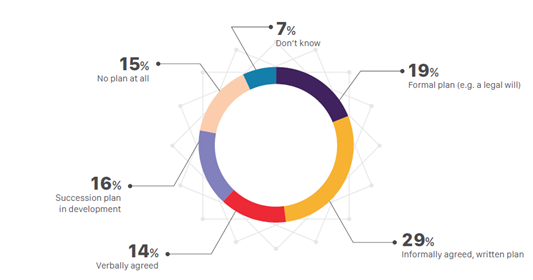 Source: Edelweiss-Campden ‘The Family Wealth Report 2018’
Source: Edelweiss-Campden ‘The Family Wealth Report 2018’
7. The next generation is coming into the fold
Over half (56%) of those surveyed reported that the next generation of family members currently hold family office/wealth management roles, while a fifth (20%) sit on the board. Roughly two-thirds (64%) said that they have a strong influence over the family business, while notable proportions also claimed that they have a strong influence over long-term investment decisions (57%) and the operations of the family office (43%).

